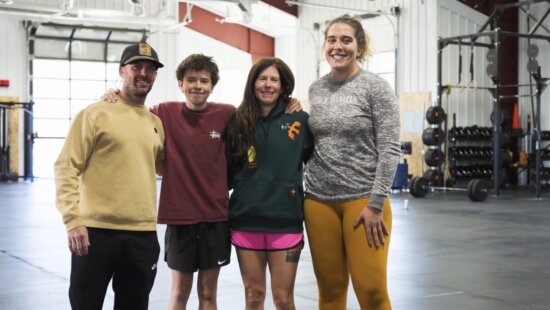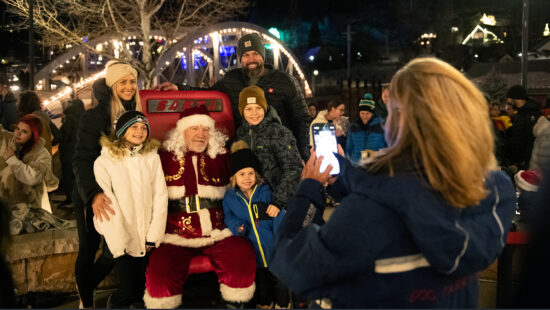Sponsored
Sustainability takes center stage at Park City’s signature summer events
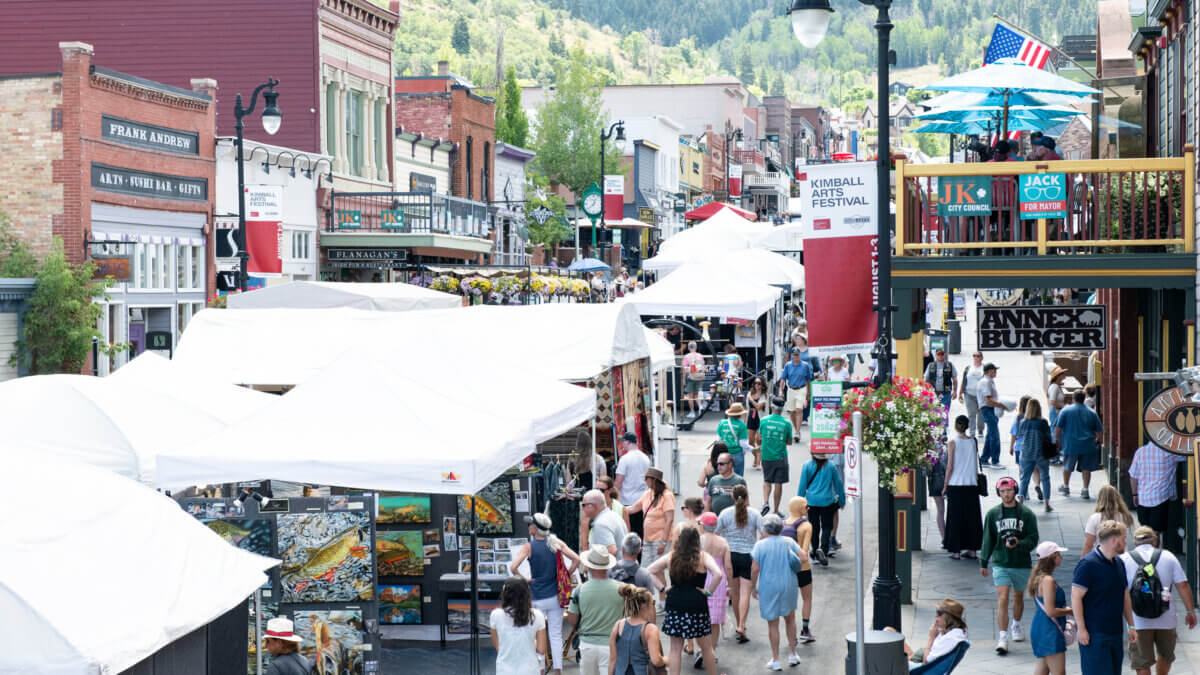
Kimball Arts Festival 2025 Photo: TownLift//Randi Sidman-Moore
PARK CITY, Utah — In Park City, some of summer’s most anticipated traditions are doubling as case studies in sustainability. From the bustling streets of the Kimball Arts Festival to the high-altitude dining of Recycle Utah’s 100 Mile Meal and the concerts and competitions at Deer Valley Resort, organizers are finding ways to preserve the environment while delivering the experiences that define the season.
The Kimball Arts Festival, now in its 56th year, draws more than 30,000 visitors to Main Street each August. Hosted by the Kimball Art Center, the festival’s footprint extends beyond art booths and live music to include a comprehensive sustainability program. This year’s efforts ranged from staffed waste-sorting stations for compost, recycling, and landfill disposal, to bike valet service, water refill stations, and the use of aluminum cans and compostable serveware in place of plastic. More than half of the event signage was printed without dates to allow for reuse in future years, and solar battery stations from Goal Zero powered the infrastructure.
“Sustainability is a shared value between Park City and Kimball Art Center,” said Hillary Gilson, director of the festival. “Each year, we look for creative ways to expand our efforts and reduce the festival’s impact.”

A few miles away, Deer Valley Resort applies its own sustainability standards to some of the community’s largest gatherings, including the annual FIS Freestyle Ski World Cup, two summer concert series that draw thousands per show, and the resort’s annual Mountain Beer Festival.
In 2024, Deer Valley received a sustainable tourism grant from the Park City Chamber of Commerce to develop a zero-waste event strategic plan and resource guide, created with consulting firm Honeycomb Strategies.
“The hardest part about moving to more sustainable, zero-waste events is quantifying waste,” said Victoria Schlaepfer, the resort’s sustainability and transportation planning manager. The plan focuses on both “upstream” work with vendors to minimize non-recyclable materials and “downstream” tracking of what leaves the venue, despite current limitations on local waste measurement.
Deer Valley already diverts a wide range of materials — paper, aluminum, plastics Nos. 1 through 7, and compostable serviceware — and operates on 80% solar power from a Tooele County array. Guests are encouraged to help by avoiding glass, bringing recyclable materials, and using clearly labeled compost, recycling, and trash bins.
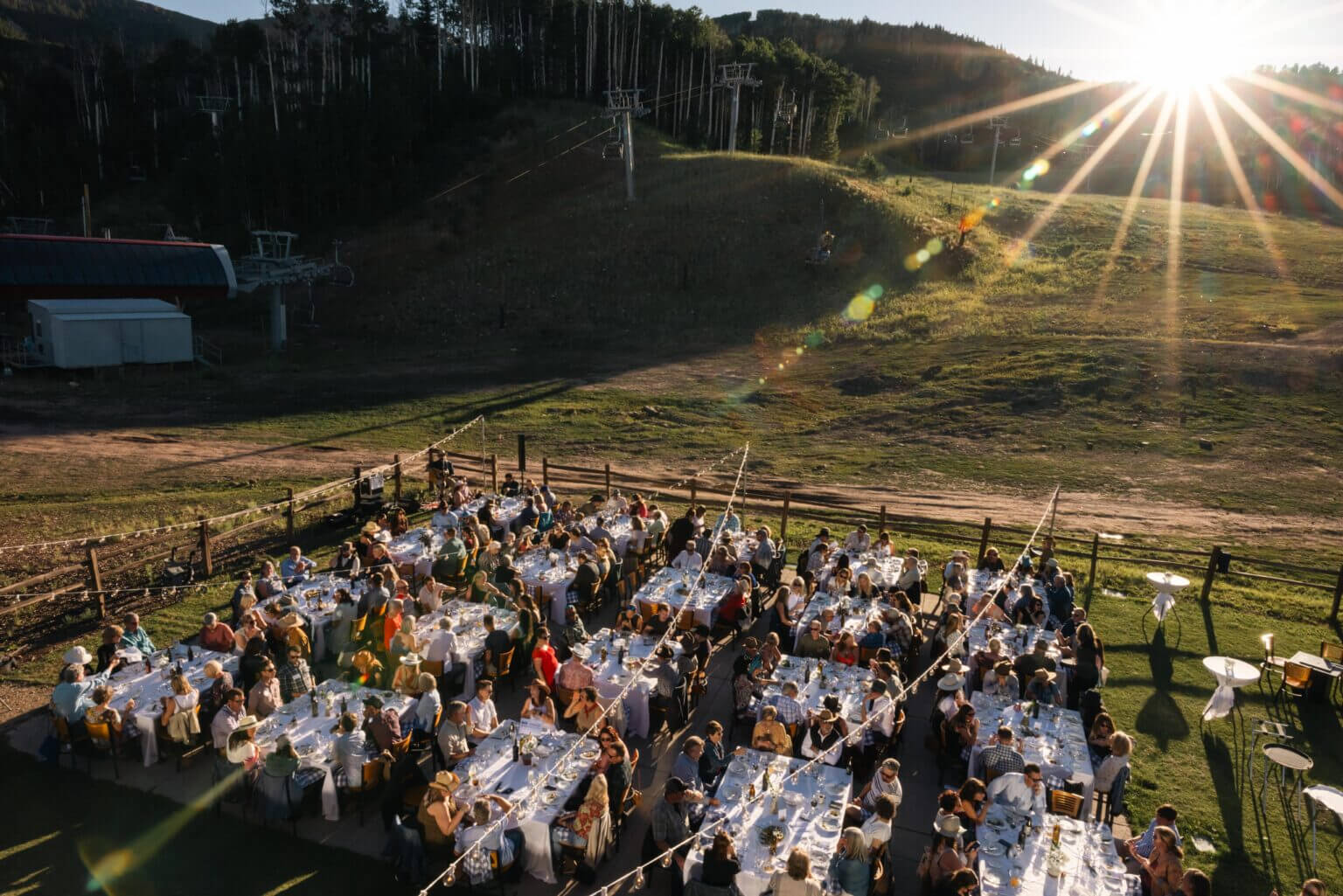
For Recycle Utah, the centerpiece summer event is the 100 Mile Meal, celebrating its 10th year on Aug. 16. Held at Park City Mountain’s Mid Mountain Lodge, the sold-out, five-course dinner is sourced entirely from within a 100-mile radius, connecting 200 attendees, including 40 farmers, directly with local food producers.
“Food has a large impact on your carbon footprint and water footprint, and eating local also supports our local economy,” said Chelsea Hafer, community outreach manager for Recycle Utah.
Seasonal constraints lead to creative menu solutions, such as honey in place of refined sugar and vinegars instead of citrus. Partnerships with Park City Mountain’s dining and banquets team ensure high diversion rates for waste, with recycling and composting systems in place for nearly every material.
Beyond the event itself, the 100 Mile Meal fosters ongoing connections between residents and farmers. Hafer recalled a guest who, after meeting ranchers from Three Springs Ranch, began buying their poultry regularly. “It connects people to the people who produce local food,” she said.
This year’s dinner also featured a silent auction of works by four local artists, each reflecting values of reuse and sustainability.
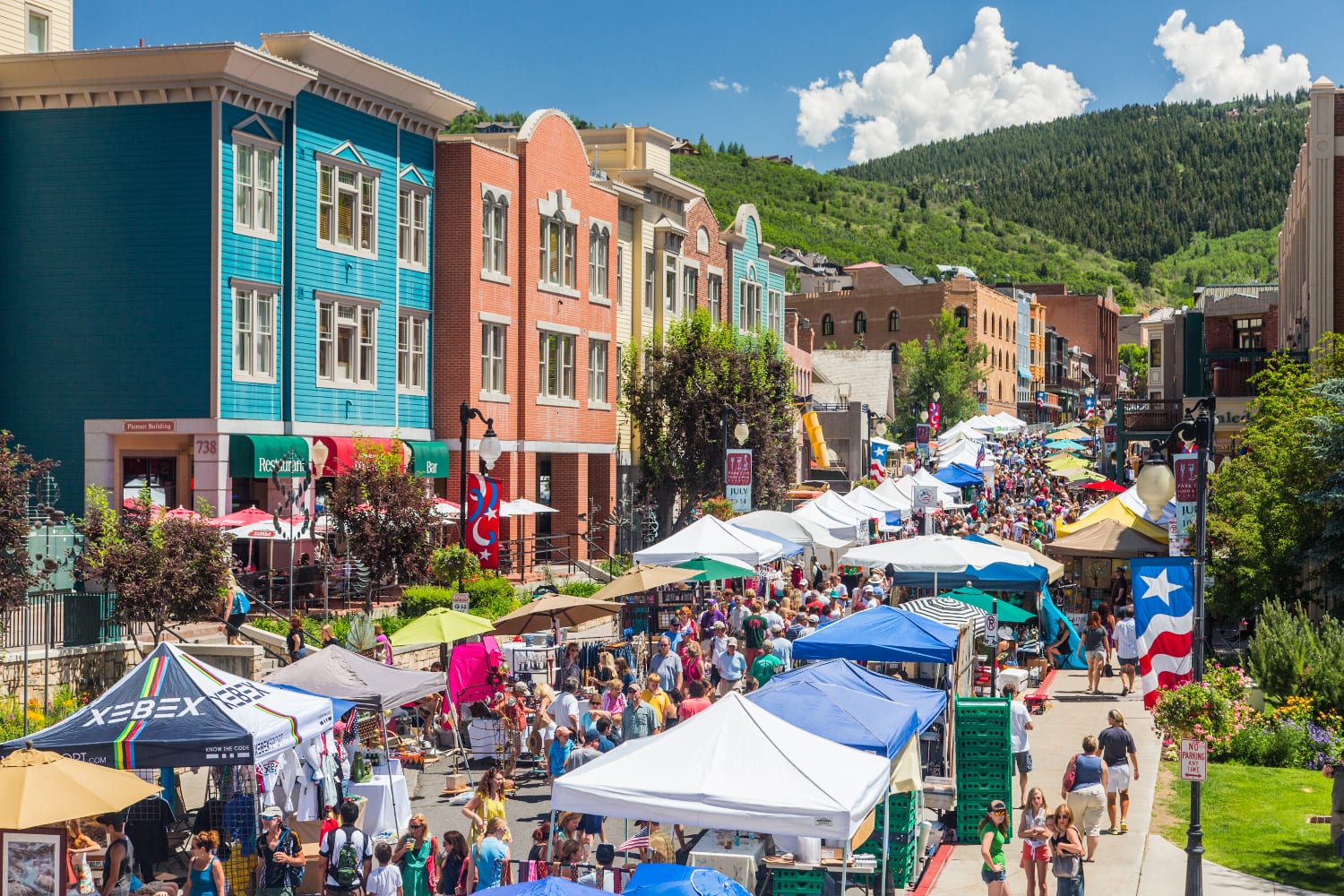
At the Park Silly Sunday Market, sustainability has been central since its launch 19 years ago. The weekly open-air market, which spans lower Main Street and draws thousands of visitors nearly every Sunday in summer, was designed from the start as a zero waste event. Executive Director Kate McChesney said the market has always used staffed waste-sorting stations, refillable water stations, and a bike valet to cut down on waste and emissions.
“We’ve always had people standing next to our zero waste stations to educate guests or take items from them directly, so everything gets sorted properly,” McChesney said. “If you don’t have anyone manning those stations, contamination happens immediately.”
The market’s sustainability practices predate the city’s requirement for special events to have a sustainability component, a standard that McChesney said Park Silly helped influence. Challenges remain, especially the high labor costs of staffing, sorting, and hauling waste. Clear bags allow staff to check for contamination, and a partnership with Momentum Recycling helps divert food waste.
McChesney said one of the most rewarding outcomes is how many other organizations, from local government to ski resorts, reach out for advice. Her main recommendation: “You have got to have somebody manning that station.”
She hopes attendees will play their part. “Please care enough that we’re trying to make a really great difference,” McChesney said. “It just takes two more seconds to read the signs or hand us your items so we can put them in the right place.”
For the organizers behind these events, sustainability isn’t a side project — it’s part of the identity. Whether through reducing single-use plastics, promoting public transit, sourcing ingredients locally, or setting countywide waste reduction standards, Park City’s signature summer celebrations are leaving a lighter footprint without losing what makes them unforgettable.
















